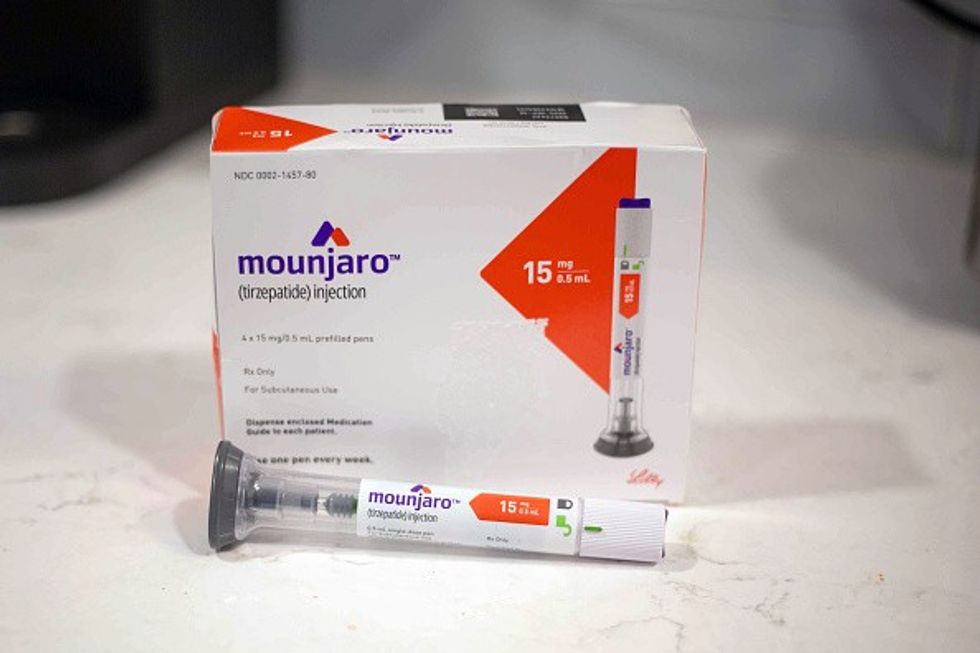Demands for the next contractual framework include additional funding and write-off of any money that is owed, among others
The 14th Community Pharmacy Conference by Sigma Pharmaceuticals has been timely, prime minister Rishi Sunak said, noting that it coincided with the launch of Pharmacy First, a new initiative that enables patients to receive treatments for seven common conditions directly from a pharmacist without the need for a GP appointment or prescription.
“We are all grateful for the tremendous contributions that pharmacists make to our NHS. The fantastic work you do is critical to the success of Pharmacy First and many other initiatives,” Sunak said in a written message.
The conference was organised from 25-29 February at Sun City in Johannesburg, South Africa, under the theme ‘community pharmacy in an integrated NHS’.
In a recorded video address to the Sigma Conference, shadow health secretary Wes Streeting said community pharmacies are ‘critical’ to the Labour party’s mission to make the NHS ‘fit for the future’.
“You should be playing a much more significant role. Labour’s reform agenda will get pharmacists working to the top of their licence. We want community pharmacists to play a greater role in healthcare, with more focus on their expertise in prescribing and medicines management,” he said.
He emphasised the need for the NHS to evolve into “a neighbourhood health service as much as it's a national health service” with more care in the community.
“For most people in Britain, community pharmacy is the part of the NHS that is closest to you. The success of your businesses is absolutely crucial to building the healthier Britain we want to see,” he added.

Pharmacy First and sector’s challenges
Launched on 31 January, the Pharmacy First scheme has been at the centre of the discussions at the conference.
Addressing the conference through a video link, Janet Morrison, chief executive of Community Pharmacy England (CPE) described Pharmacy First as a significant investment for the future and a foundational stone for future clinical services development.
However, she maintained that the Primary Care Recovery Plan funding and Pharmacy First won’t solve the pharmacy’s underlying funding crisis, adding that it is crucial to ensure that core funding for the sector is included in the 2024/25 deal.
Community pharmacy is currently in a “very difficult and depressing” situation, and it is very hard to be optimistic about the future at the moment, Morrison said, as she underscored the myriad challenges facing the sector, including workforce pressures, funding issues, and the rising national living wage, which is estimated to cost the sector £150-£195 million from April.
According to Morrison, negotiations on the 2024/25 Community Pharmacy Contractual Framework (CPCF) were delayed by the recent changes in ministers. The CPE has received the opening letter on negotiations, and they had their first meeting to discuss their key asks, priorities, and red lines.
The CPE’s asks for the CPCF 2024/25 include additional funding to the core contract sum, an agreed mechanism for annual uplift to funding and fees, write-off of any money that is owed, fundamental reform of the margin delivery framework, and an economic review of the medicine supply chain. Additionally, the CPE has asked for easing workload through operational changes and efficiencies that were promised in the previous five-year deal but are yet to be delivered, as well as further improvements to price concessions.
Furthermore, she said the CPE is looking at alternative funding mechanisms, including shared incentives for services, simplification of payment mechanisms, inflationary provision and indexation to the fee rates and the baseline, review of supply chain issues and the reimbursement system, and enhancement of margin provision.
Morrison revealed that the CPE’s focus in 2024 will be monitoring the delivery of Pharmacy First, and on economic consultancy that they are doing to “build the building blocks for the next contractual framework and to look at alternative funding methods.”
“With the right funding and core capacity, we have huge potential for the future. But we'll need that investment to ensure that we can stay and that we can deliver the services that patients need,” she added.

Pharmacies ‘can’t innovate their way out of a crisis’
Shedding light on the current state of pharmacies in England, Dr Leyla Hannbeck, chief executive of the Association of Independent Multiple Pharmacies (AIMp) said the pharmacy contractors are “tired, deflated, unappreciated and operating against a culture of mistrust and chronic underfunding.”
She expressed concern that the contractors are wrestling to manage their finances and costs within a ‘grossly inadequate envelope’, and with mounting debts, they are ‘forced to raid advances’ to stay afloat.
While the average prescriptions per pharmacy has gone up dramatically to 8596, the gross margin per item has substantially declined, she noted, claiming that there has been a 23 per cent reduction in gross margin since the year ending March 2015. Category M funding of £800 million has been the same for nearly a decade now despite the rise in prescription volume, she added.
Community pharmacies are being asked to embrace innovation and introduce services, but Dr Hannbeck argued that “you can’t innovate your way out of a crisis.” Without addressing the £1.2 billion shortfall in funding, it's going to be very difficult for the sector to move forward, she said.
Taking about Pharmacy First scheme, Dr Hannbeck said that it will lead to £390m in savings for the NHS for 10 million appointments, going by the calculation that the cost of a 15-minute appointment with a GP is £70 while a pharmacist does that at £8.75.
In a survey carried out by AIMp a month after the launch of the scheme, a significant number of participants (over 70%) said the remuneration for the service was not sufficient. Additionally, the survey found that 60 per cent of pharmacists would like to see the service to be expanded to include more conditions, but only with additional remuneration.
Dr Hannbeck underscored that the community pharmacy global sum, which currently stands at £2.6bn, needs to be doubled, as she said “investing in this sector will save money for the wider NHS and taxpayers.”

‘Address medicine supply challenges’
Pharmacy First is an important development, but there’s still a lot of work to be done to fully unlock its potential, Steve Brine MP, chair of the Commons Health and Social Care Committee, told the Sigma Conference.
Addressing the participants in a recorded video, Brine, a former health minister, revealed that the Health and Social Care Committee is midway through gathering evidence in its pharmacy inquiry, and they have heard about the various challenges facing community pharmacies. These include funding challenges and medicine shortages, with evidence provided to the inquiry suggesting that community pharmacy funding has fallen by 30 per cent in real terms and 92 per cent of pharmacy teams are dealing with medicine supply issues.
“Medicine shortages are an infection that runs the risk of spreading across the body of primary care, not just pharmacy. If we don't treat it, the whole system will get sick and it will only get worse for pharmacists, patients and the whole NHS,” Brine said.
The government has suggested that the rollout of Pharmacy First could free up to 10 million GP appointments per year, but Brine noted that this is unlikely to be achieved if the patients are being continuously told that their medication is out of stock and they are required to get back to their GP to get a new prescription.
He indicated that generic substitution is a simple solution to this problem, but pharmacists who are experts in medicine don't have the autonomy to provide another version of the same medication. “GPs should not have to spend their time reassuring prescriptions for the same medication and conditions,” Brine said, adding that the committee will be making recommendations to ministers in this regard.
“If we have to see the true benefits of Pharmacy First, it will be key to address challenges with medicines supply,” Brine said.
To tackle drug shortages, the British Generic Manufacturers Association urged the government to place greater strategic importance upon generic and biosimilar medicines, prioritise a reduction of the generic licensing backlog, and push for mutual recognition of batch testing with EU in the 2025 review of the trade agreement to support domestic production, among other things.
Martin Sawer, executive director of the Healthcare Distribution Association, expressed hope that the supply chain will be more stable this year, with improved mechanisms now in place to respond to issues promptly and achieve a better balance between demand and supply.
Need to collaborate
The conference also brought together the chief pharmaceutical officers of the four UK nations - David Webb (England), Alison Strath (Scotland), Andrew Evans (Wales) and Cathy Harrison - (Northern Ireland) on one platform.
The CPhOs highlighted the urgent need for pharmacy professional leadership bodies and specialist professional groups to “work collaboratively” to deliver on their potential and address together a wide range of professional issues.
Webb informed the attendees that they are taking important steps to deliver on the recommendations of the independent UK Commission on Pharmacy Professional Leadership’s report, published in February last year. A significant milestone was the establishment of the UK Pharmacy Professional Leadership Advisory Board in October 2023, with Sir Hugh Taylor appointed as its independent chair.
Proving an update on the work being undertaken at NHS England, Webb said that his office has collaborated with Professor Mahendra G Patel to develop pharmacy professional practice with 15 national pharmacy partners. “The aim is to work collaboratively to develop and embed inclusive pharmacy practice into everyday care for patients and members of the public to support the prevention of ill health and address health inequalities within our diverse communities,” he elaborated.
Strath also emphasised the importance of all bodies working collaboratively and utilising all kinds of skills, capabilities and capacities across all organisations to have a kind of “common focus and a shared vision.”
Meanwhile, Evans said that they are transforming community pharmacy in Wales to meet the needs of the NHS and citizens of the country. His key points of transformation included the integration of community pharmacy into the broader health and care system, along with securing adequate funding by positioning the sector as “an investable proposition” in the eyes of the commissioners and the government.
Harrison outlined their community pharmacy strategic vision 2023, including their plan to utilise the skills of community pharmacists to increase capacity within health and social care.
The Sigma conference this year has been unique due to its diverse attendees, including doctors, dentists, pharmacists, opticians, and others, all embracing a holistic approach.
Dr. Bharat Shah, co-founder of Sigma Pharmaceuticals, described the conference as the first step towards enhancing collaboration among primary healthcare providers.
“An integrated NHS including pharmacy is crucial for improving patient care. This conference is the beginning of our endeavour to strengthen collaboration among primary healthcare providers to give patients the best care by fostering a unified and coordinated approach. The discussions initiated here will continue in our upcoming conferences, and we will also assess the outcomes of each session,” Dr. Shah told Pharmacy Business.












 A Royal College would be beneficial to both pharmacists and patients, said BennettPic credit: iStock
A Royal College would be beneficial to both pharmacists and patients, said BennettPic credit: iStock






 Daniella Fakhouri, director of pharmacy at LIPs
Daniella Fakhouri, director of pharmacy at LIPs Mounjaro (tirzepatide) injections (Getty Images)
Mounjaro (tirzepatide) injections (Getty Images)
